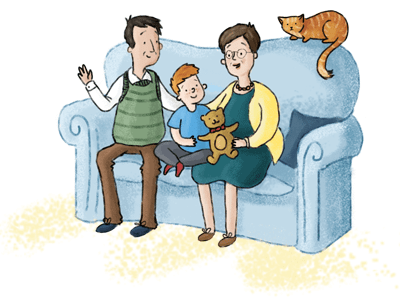
Last week the Department for Education (DfE) made huge cuts to the funding available to families through the Adoption and Special Guardianship Support Fund (ASGSF), with four main changes:
- The fair access limit for the cost of therapy provided each year has been reduced from £5000 to £3000;
- The ASGSF will no longer fund more expensive support packages over the £3000 limit. (They had previously contributed 50% of the annual cost of therapy up to a maximum of £30,000 for cases that were higher risk or met other specified criteria, with councils funding the rest);
- There is no longer a separate allowance of £2500 available to fund specialist assessments and the cost of these must come out of the above £3000 limit;
- There will no longer be provision for children and families to receive support across financial years. This means, for example, that all therapy packages or assessments funded through the ASGSF in 2025-26 will have to have been completed by March 2026.
The above changes are also likely to mean delay for some children, as applications already made which exceed the new £3000 limit will be returned to applicants for amendment and resubmission.
The DfE says that the reason for the changes is to “maximise the number of children who are able to access this fund”, in the context of “significantly” growing demand.
However, there has been substantial criticism of the changes, which Family Futures (a voluntary adoption agency and therapy provider) describes as being “inadequate for children at high risk”. When giving her views their Chief Executive, Jay Vaughan, asked how the type of therapy required can be identified without specialist assessment, the cost of which is now included within an overall limit, reducing the money available for the therapy itself. She estimates that £3000 would provide up to 20 short therapy sessions, once accompanying tasks such as report writing and liaison with parents, carers and professionals is also account for. She warns that the DfE’s approach risks placement breakdowns and the return of those children to the care system.
The changes have been also been called “short-sighted” by the charity Adoption UK and the Consortium of Voluntary Adoption Agencies (CVAA), who are worried that the changes will incur further costs down the line when therapy is not available and leads to unresolved trauma, carer burnout and instability. There are worries that it may also discourage prospective adopters.
The ASGSF is currently for children and young people up to the age of 21 (or 25 with an education, health and care plan) who:
- are living (placed) with a family in England while waiting for adoption;
- were adopted from local authority care in England, Wales, Scotland or Northern Ireland and live in England;
- were adopted from abroad and live in England with a recognised adoption status;
- were in care before a special guardianship order (SGO) was made;
- left care under a special guardianship order that was subsequently changed to an adoption order, or vice versa;
- are under a residency order or child arrangement order (CAO) and were previously looked after;
- were previously looked after but whose adoption, special guardianship, residency or CAO placement has broken down, irrespective of any reconciliation plans.
In 2023-24,16,970 therapy applications were approved for services, along with 2,718 for specialist assessments. Therapies funded include creative and physical therapies, family therapy, psychotherapy, parent training and therapeutic life story work.
If you need advice about caring for a child, the legal order or support available, our supportive and empathetic legal team are on hand to support you. Contact us today on 0161 884 0905 or email bromleys@bromleys.co.uk and see how we can help.











